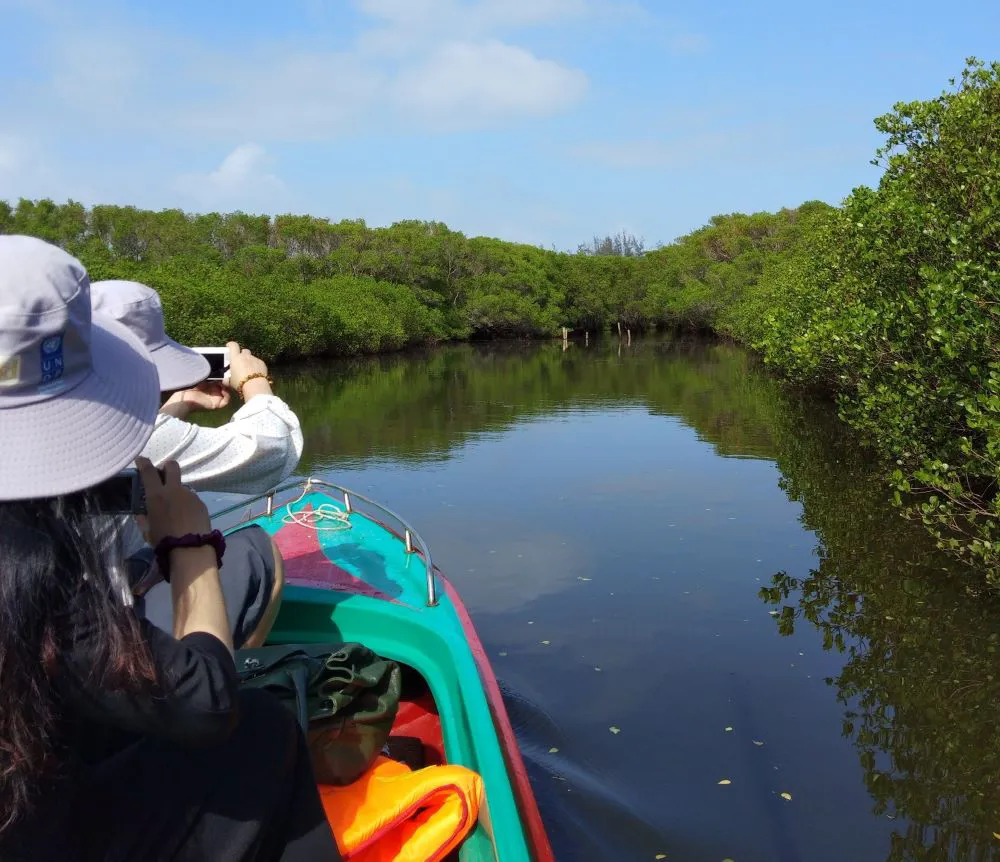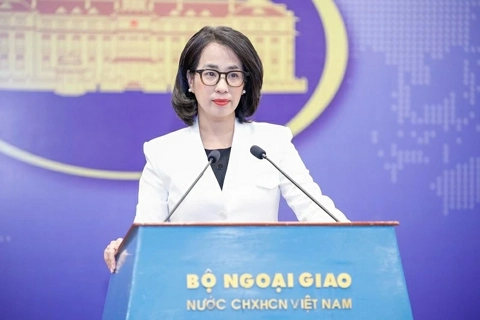FAO helps Vietnam improve forest resources
With FAO’s support, Vietnam is expected to tune into digital transformation by diversifying revenue resources from forests.
The Food and Agriculture Organization (FAO) is a committed partner of Vietnam to embed a range of innovative technologies into the country’s forestry sector.
| Rémi Nono Womdim, FAO Representative in Vietnam. |
This includes establishing a monitoring and evaluation system for forest resources, with the application of remote sensing technology, geographic information systems, information technology in forestry industry management, mapping and securing customary land.
These efforts will help empower local rural communities and ethnic minorities, Rémi Nono Womdim, FAO Representative in Vietnam, shared with The Hanoi Times on the occasion of International Day of Forests 2024, March 21.
By 2030, this work by FAO and local partners, in particular the Ministry of Agriculture and Rural Development, will see 100% of forest owner organizations capable of monitoring, supervising, managing forest resources and preventing and fighting forest fires based on science and technology.
FAO is also helping Vietnam tune into the digital transformation revolution by diversifying revenue sources from forests, such as carbon credit transactions through the upcoming FAO-backed lowering missions by accelerating forest finance (LEAF) Reduction Program, plus technical support of the Payment for Forest Environmental Services initiative.
With Vietnam one of the world’s largest wood and wood product exporters, ranking fifth globally and first in Southeast Asia, FAO is helping push the boundaries of sustainable wood products. Additionally, through ecosystem restoration, including reforestation efforts, we are boosting climate mitigation efforts and enhance food security in vulnerable communities.
These innovations taking root in Vietnam’s forestry sector are inspiring and set a solid foundation for further initiatives to ensure this critical renewable resource is able to continuing replenishing itself and remain a force for life on this planet.
To celebrate International Day of Forests, Rémi Nono Womdim highlighted the role of forests, saying they are a stabilizing force for life on this planet.
Covering around one-third of all land on Earth, they regulate ecosystems, protect biodiversity, support livelihoods in rural communities and can help drive sustainable development.
Forests are also home to most of earth’s terrestrial biodiversity. They supply water, provide livelihoods, mitigate climate change and are essential for sustainable food production.
Yet deforestation and forest degradation continue to take place at alarming rates. We must take bold actions to reverse the loss of forests and their biodiversity for the benefit of current and future generations. This is a call to action for every individual and country, including Vietnam.
To underline the need for action, this year’s theme for International Day of Forests 2024 is Forests and Innovation: New Solutions for a Better World. The importance of forests to our future is why the United Nations General Assembly, in 2012, proclaimed March 21 as the International Day of Forests to celebrate and raise awareness of the importance of this renewable resource.
This year’s theme is highly relevant to us all. Though the rate of deforestation has decreased over the past three decades, more than 420 million hectares of forest have vanished globally since 1990. With 10 million hectares lost annually due to deforestation and approximately 70 million hectares affected by fires, the battle against deforestation requires new technological advancements.
These innovations are essential for early warning systems, sustainable commodity production, and empowering people through land mapping and climate finance access.
In simple terms, reducing deforestation and forest degradation, in step with restoring and sustainably managing forests, are critical pathways to help achieve the 2030 Sustainable Development Goals.
In the words of FAO Director-General Dr QU Dongyu, “let us build a green, healthy and resilient future with forests, for all-live in a city with forests and in a village surrounded by forests.”
A mangrove forest in Vietnam's Central province of Quang Ngai, which is funded by UNDP. Photo: Linh Pham/The Hanoi Times |
Vietnam has reported making significant efforts in forest management and protection over the last decades.
As of right now, Vietnam is the only nation in the Mekong region to have reported consistently increasing its forest coverage over the previous thirty years. The Vietnamese government wants to raise the country’s forest coverage to 45% by 2030 and stabilize the natural forest area to at least match the amount attained in 2020.
Furthermore, the government has authorized the Sustainable Forest Management and Forest Certification Program 2016-2020 in order to provide wood products with the legal source needed to satisfy domestic and international markets and to increase their economic value.
As per Decision No.993 dated August 2023, on the national plan to implement the Glasgow Leaders’ Declaration on Forests and Land Use, Vietnam will monitor its natural forests closely and address land and forest degradation gradually by 2025.
According to the plan, 10% of the nation’s degraded natural forests will be restored and upgraded by 2025, and 20% by 2030. By 2025, the certified area for sustainable forest management is anticipated to grow to 0.5 million hectares, and by 2030, it will reach 1 million hectares.











